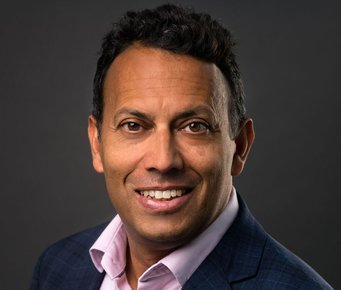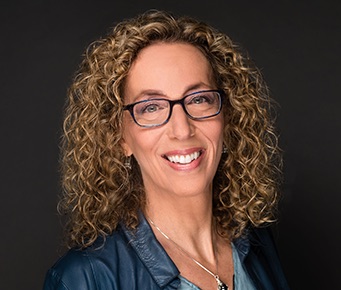
Our potential first-in-class gene therapy candidate for adrenomyeloneuropathy (AMN) has joined Spur’s expanding pipeline of next-generation genetic medicines. Learn more and get updates at SpurTherapeutics.com.
This site will remain live until Q4 2024 as we transition content to our new site.


Our three founders represent a confluence of experience, expertise, and patient-centricity that provides a strong foundation from which to continue growth and clinical advancement.

Chair of SwanBio’s Clinical Advisory Board
Co-Founder
A practicing neurologist with deep experience treating patients with inherited neurological diseases, including adrenoleukodystrophy (ALD) and adrenomyeloneuropathy (AMN).
Dr. Florian Eichler is the Director of the Leukodystrophy Service and of the Center for Rare Neurological Diseases at Massachusetts General Hospital and Professor of Neurology, Harvard Medical School.
As Director of the Leukodystrophy Service at the Massachusetts General Hospital (MGH), Florian sees patients with a variety of white matter disorders. He has received several NIH awards funding studies to analyze metabolic changes seen in the brain by magnetic resonance (MR) measures and to determine the neurotoxicity of newly discovered atypical sphingolipids.
Florian’s research focus is on the genetics of peroxisomal disorders, lipid metabolism, and spatial aspects of nuclear magnetic resonance spectroscopy. His laboratory explores the relationship of mutant genes to specific biochemical defects and their contribution to neurodegeneration.
In April 2018, The Clinical Research (CR) Forum, a non-profit membership association of top clinical research experts and thought leaders from the nation’s leading academic health centers, presented the Herbert Pardes Clinical Research Excellence Award, its most prestigious honor to Florian’s research team for its discovery of the first successful gene therapy treatment to stave off cALD, the childhood degenerative brain disease. Using a disabled form of HIV to deliver the gene therapy, Florian and his research team were able to halt the progression of the disease in 15 out of 17 boys who participated in the clinical trial. The study opens the door not only for treating ALD, but also other neurological diseases.
Florian was the lead investigator of the clinical trial of cerebral adrenoleukodystrophy (cALD) gene therapy Lenti-D, published in the New England Journal of Medicine (2017).
Florian received his MD from the University of Vienna Medical School in 1997 and joined the staff at MGH in 2005.

Chief Scientific Officer
Co-Founder
Leading scientific researcher with 25+ years of experience in gene therapy for inherited and acquired diseases, including neurological conditions.
Karen Kozarsky has 25+ years of experience in gene therapy, with a primary focus on the development of therapies for inherited rare diseases, utilizing adeno-associated virus (AAV) vectors.
Dr. Kozarsky has deep experience evaluating potential therapeutic opportunities, identifying new areas, and developing products from the earliest preclinical stages through IND.
She has been involved in the development of multiple gene therapy products that are in clinical trials.
Previously, Dr. Kozarsky was President of Vector BioPartners, Vice President of R&D at REGENXBIO Inc., and Head, Gene Therapy in the GlaxoSmithKline Biopharmaceutical Center of Excellence for Drug Discovery. Prior to that, she was a Research Assistant Professor at the University of Pennsylvania in the Institute for Human Gene Therapy, and completed postdoctoral fellowships at the University of Michigan in gene therapy and in immunology.
Dr. Kozarsky was named by the Alliance for Regenerative Medicine as the first co-Chair of the Gene Therapy Section to support policies to advance novel gene therapies, and has been a committee member for the American Society of Gene & Cell Therapy.
Dr. Kozarsky received a PhD in biology from the Massachusetts Institute of Technology and a BA in biology from Amherst College.

Co-Founder
Long-standing advocate for patients, families, and caregivers impacted by ALD and AMN with experience advancing therapies for these conditions.
Dr. Rachel Salzman is a passionate advocate for advancing therapies where novel platforms such as genetic and cellular therapies hold promise. Dr. Salzman co-founded SwanBio Therapeutics in 2017, after serving as a leadership member of The Stop ALD Foundation since 2001. For over 15 years she has provided drug development advice to biopharmaceutical executives working in the rare disease space where complex biological and business issues intersect with serious unmet medical need.
The Stop ALD Foundation is a non-profit Medical Research Organization dedicated to employing entrepreneurial approaches and innovative methodology towards effective therapies, cures, and prevention of X-linked adrenoleukodystrophy (ALD), an often-fatal neurodegenerative disease.
Dr. Salzman received a DVM (Doctor of Veterinary Medicine) from Oklahoma State University and a BS in Animal Science from Rutgers University.

To drive our continued growth and clinical advancement, we have built on the strong foundation established by our founders with the support of two primary investors: Syncona, Ltd. (our lead investor and majority shareholder) and Mass General Brigham Ventures. These long-term, committed partners have a proven track record in cell and gene therapy investment, particularly in AAV-focused therapies.

Syncona Ltd.,
a leading healthcare company focused on creating, building and scaling companies around exceptional science to create a diversified portfolio of 20-25 globally leading life science businesses, across development stage, modality and therapeutic areas, for the benefit of all stakeholders.
Syncona partners with the best, brightest, and most ambitious minds in science to build globally competitive businesses.
Syncona’s leading life science portfolio seeks to deliver strong risk-adjusted returns for its shareholders over the long term, driving transformational impact for patients, by focusing on building companies to late-stage development. Syncona’s long-term view approach is underpinned by a strategic capital pool, which provides it with control and flexibility to fund its companies from foundation to late-stage development – connecting science with its full value potential. Syncona focuses on delivering transformational efficacy for patients in areas of high unmet need.
Syncona’s charitable commitment to The Syncona Foundation allows it to support patients, their families and research institutions beyond its core activities, and every year Syncona makes a donation of 0.35% of its Net Asset Value.

Mass General Brigham Ventures,
formerly known as Partners Innovation Fund, is an early-stage venture capital firm founded in 2008 to advance new life science technologies emerging from Mass General Brigham, one of America’s most renowned health systems for medical research.
The firm’s unique model combines first access and proprietary rights to disruptive deal flow with an established track record of new venture formation, company building, and value creation.
The firm invests in bold, transformative innovations with the goal of bringing new drugs and technologies to the market benefit of patients worldwide.